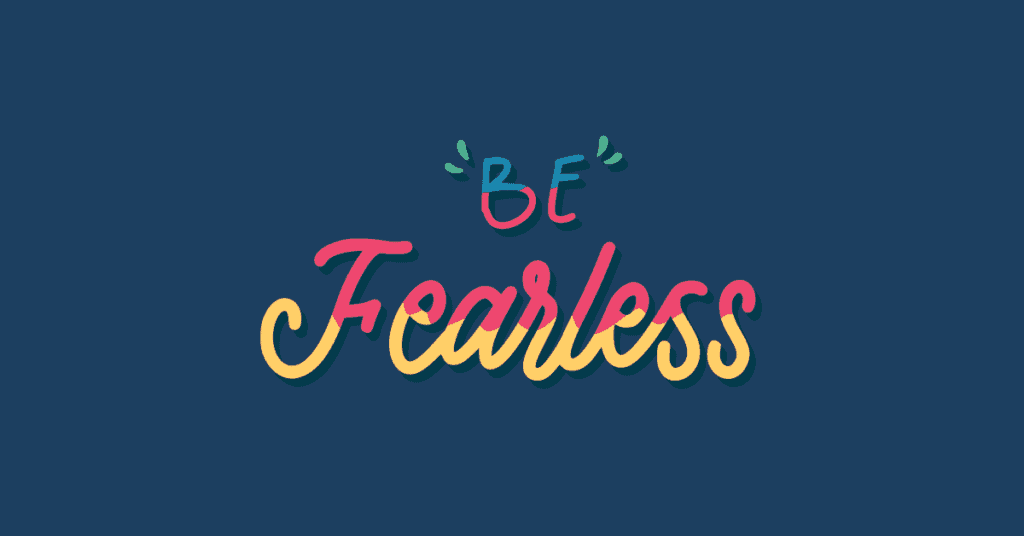
Everyone has Fear
Letting go of Fear can be challenging. Fear is an emotion, and everyone experiences it. Fear doesn’t have to be accurate for us to feel the effects of it. If we perceive a threat, that is enough to emit a response. When we feel afraid, our body goes into fight or flight mode, and we may experience the following physical symptoms:
Increased heart rate
Increased blood pressure
Increased respiration
Release of stress hormones, adrenaline, and cortisol
For example, if you are afraid of public speaking and you have to give a speech in front of a group of people, you will likely feel all the effects above.
At the same time, Fear also has a cognitive component. We experience various thoughts and beliefs about the perceived threat, including its likelihood, potential consequences, and ability to cope. These mental factors can further amplify or mitigate the emotional response to Fear.
The critical thing to notice here is that our cognitive factors amplify or mitigate the emotional response to Fear. This means we can learn to control our response to Fear, and that’s how we overcome it.
What it Means to Let Go of Fear
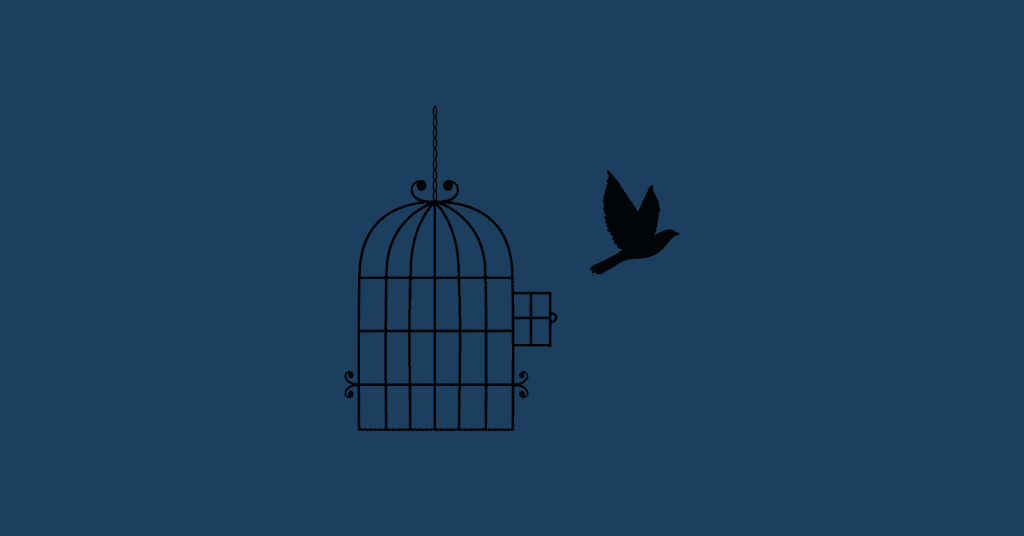
Letting go of Fear doesn’t mean we don’t have Fear. It means we have the control to let it go so that it doesn’t control us. This involves self-awareness and the ability to discern real Fear from perceived Fear. Fear is healthy and keeps us safe. But Fear is also a liar. The better you detect the difference between the two, the more courage you develop.
How Fear Keeps You From Achieving Your Dreams
Fear causes self-doubt and worry and often prevents you from taking the first step toward what you want. If you let Fear control you, you may feel paralyzed, lost, and stuck, failing.
With Fear controlling you, you cannot achieve what you desire. When we are fearful, our brain is unable to function correctly. We lose the ability to think logically and solve problems. Our worries consume us.
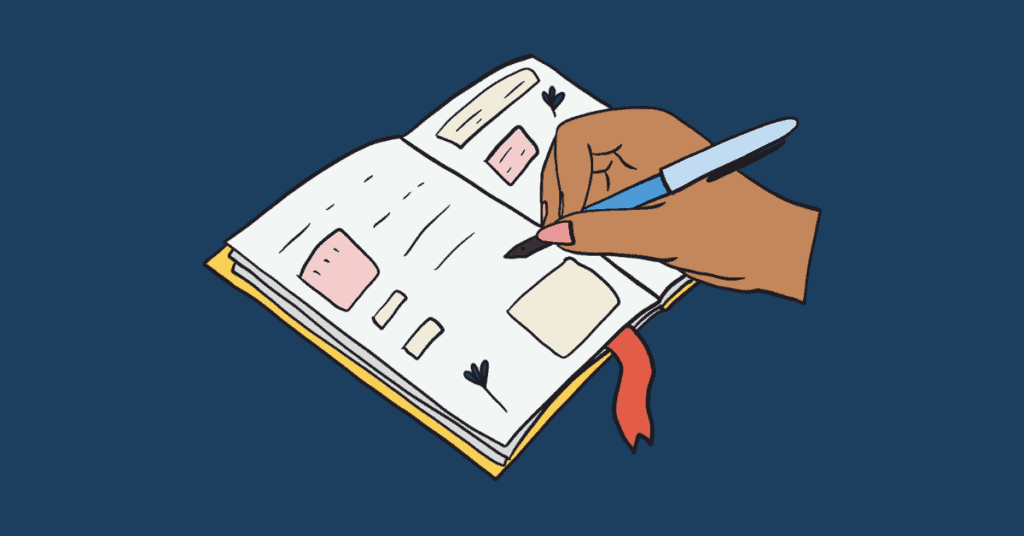
Journal Through Your Fears
Each headline in this section is a journaling exercise. Please write it down in a notebook and work through it.
Identify Your Fears and Understand Why They Are Holding You Back
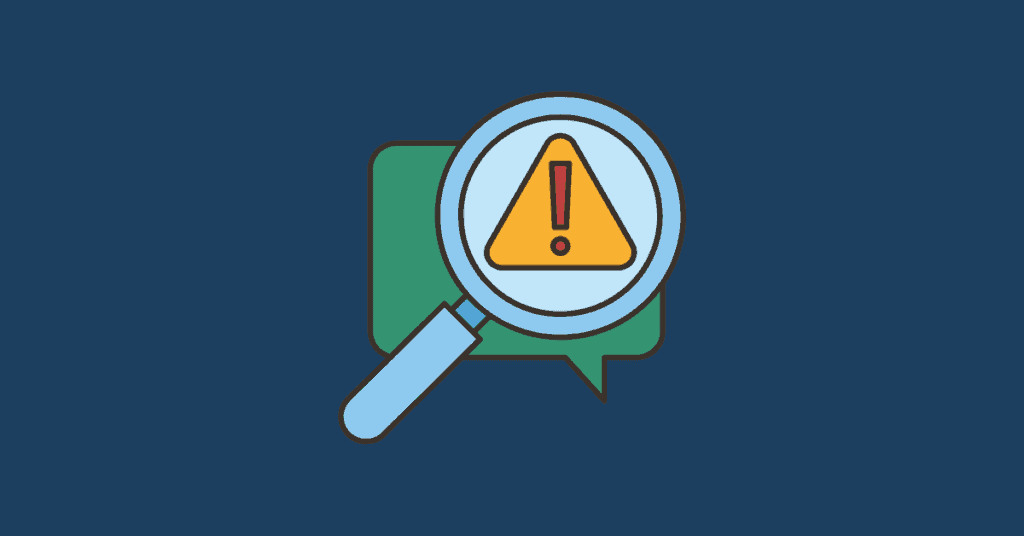
Fear is a powerful emotion. To control it, you first have to identify it. Everybody has different fear points and levels of tolerance for Fear, so this is a self-reflective activity specific to you. Use journaling as a way to identify it.
Start by taking 15 minutes with pen and paper and write out all your fears. Be honest here. Consider and write down all your fears.
Next, please write down what each Fear keeps you from. What are the possible outcomes if you were not afraid? Write down all the good things that could result if you put Fear aside and took action.
Get to know your fears.
Once you have a clear picture of your fears, you need to be aware of when you experience them. Create a habit of journaling your fears, the emotions and physical effects you experience, and your plan of action to overcome them.
Identify and write down your fear response. How do you feel when you experience Fear? What actions do you take? What is your default reaction when confronted with Fear? When do you experience Fear?
Play the worst-case scenario.
An excellent way to create a plan you will act on is to ask yourself, “What’s the worst-case scenario?” Write down your thinking process and how you came to that conclusion. Then, evaluate it.
Once you know the worst outcome, you can work up from there. You can do many things in each scenario that will prevent you from hitting the worst case. You will be able to identify your control over the situation, and often, you will realize your Fear and anxiety are irrational.
Challenge your beliefs about Fear and anxiety.

Once you’ve identified your fears, it’s a good idea to evaluate your beliefs about them and how they change how you live. Our beliefs come from past life experiences, and certain situations bring up negative emotions from these past experiences.
Bad things happen, but we can’t take those bad things and use a blanket belief to suddenly cover everything related to it. For example, I got food poisoning as a kid once from BBQ chicken. It took me years to eat BBQ chicken again; I convinced myself I wouldn’t say I liked it.
Humans tend to do this not just with minor incidences, but larger ones can happen too. Can you see the problem this poses? It prevents us from doing things we usually enjoy, even though the probability of something wrong happening is low.
Finding Meaning in Life
When your purpose is more significant than your fears, focusing on the purpose crowds out the Fear. Most successful people have a spiritual routine. They take time every day to remember the higher power they believe in. There’s something that allows you to feel free when you let go of Fear and submit to the higher powers at play in the universe. Putting your faith in a more significant power alleviates stress and anxiety from your days.
Picture the End Result

Visualizing you doing or completing the task successfully helps eliminate Fear by allowing you to believe it’s achievable without something terrible happening. Your anxiety will decrease as you see or hear yourself overcome the obstacle.
Imagine as vividly as possible you going through the process of whatever moment it is that is giving you Fear. Acknowledge the Fear, take a deep breath, and then move forward. Feel the Fear begin to melt away and embrace your emotions, but don’t let them stop you from success.
Imagine your future and what achieving things will be like after it’s done. Write down the emotions you expect to feel, like peace, joy, and delight. What is the best thing about achieving the goal?
2. Talk to Friends and Family

Once you do this exercise on your own, talking to a family member, best friend, or another person you trust may be helpful. Let them know what you’re working through and why. Ask them for help by giving you feedback.
Often, we don’t perceive ourselves as clearly as others do. This is where a trusted friend or confidant will be invaluable. They can help you to see yourself, give you feedback, and help you to stay focused when you experience Fear.
3. Use Stress-Relief Techniques
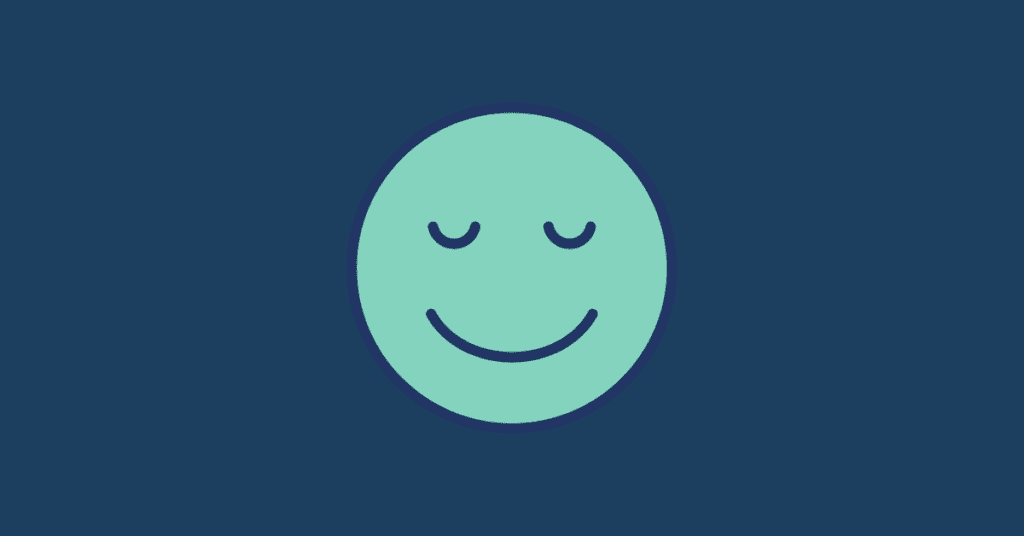
Breathing Techniques
Breathing techniques are powerful and one of the main strategies I used to overcome panic attacks that used to plague me.
I would find a quiet, dark place in the house, usually a bathroom. I’d sit on the toilet (with the lid down, of course!), put my head in my hands, and practice deep breathing. Focus on breathing in and out, and I’d tell myself everything I knew about my fears. I’d fill my mind with logic until I talked myself off the hypothetical ledge.
Meditation
Meditation is a strategy that some people swear by. It also involves finding a dark and quiet place where you imagine the world around you is nonexistent.
Some people like to use mantras, like “Om.” Others want to listen to soothing sounds, like waterfalls. People turn rooms of their homes into sanctuaries for meditation. You don’t need to go that far. It’s a matter of finding what works for you. Experiment a little.
Gratitude

Gratitude is another powerful emotion that can change your life and contribute significantly to letting go of Fear. Taking a moment to focus on what you are grateful for every day will change the path of your day. Embrace where you are in your life and take a moment to free your mind of your troubles and hurt and instead stay focused on what you have. Be thankful.
Spirituality
Belief in a higher power is liberating. When you relinquish authority over your life and have faith in something more significant, you experience fearlessness. You can have confidence in that higher power. It puts life into perspective, knowing life is fleeting and we are miniscule in the grand scheme.
Kindness
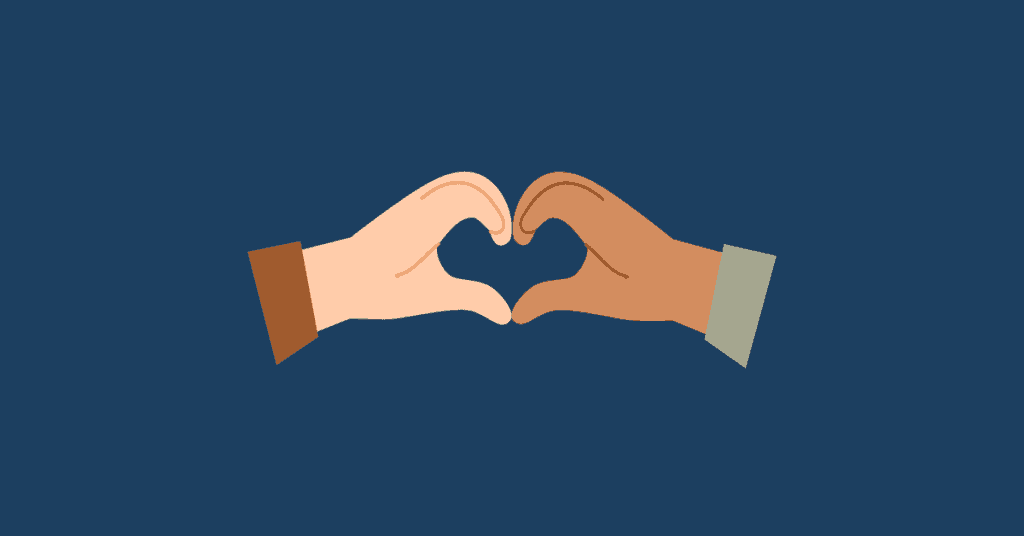
Kindness is about others. Being others focused and being kind does something to our brain. It allows us to help another person or contribute to others in a way that brings us a sense of well-being—talking to an older adult on the bus, watching your best friend’s speech, or helping a homeless person find a job. These are all tips to show others kindness.
Showing another person kindness daily, even if just a smile as you pass, releases hormones that bring you joy. Practice kindness all day, every day. Make it a point in your life.
Generosity

Generosity is another way to release anxiety and let go of Fear. Be generous not just with money but with your time. Giving money is a great gift that benefits many and improves life overall. But time is just as valuable if money isn’t an option.
Time is free so anybody can give it. There are many organizations all over the world that would benefit from an extra pair of helping hands.
Letting go of fears: What happens when you succeed?

Think of the possibilities of your life if you succeed. How many lives would be impacted? How would your life be affected?
I encourage you to use these three tips to overcome your anxiety, let go of Fear, and finally take on the things you’ve been too afraid to do. Through journaling, talking with friends, and practicing stress relief techniques, I have complete faith that you will be successful at letting go of Fear.
Practice Makes Perfect
Have realistic expectations for yourself to keep from getting discouraged. Perfection is not expected. This is a process, and success is not a straight line. It’s a combination of hills and valleys.
Things will happen that will cause you anxiety and trip you up. Keep practicing these tips, and you will grow stronger each time you climb that hill. Your anxiety will grow less frequent, you will begin to have more courage, and your body will react differently over time.
Letting go of fear will allow you to be free. Embrace the change.





